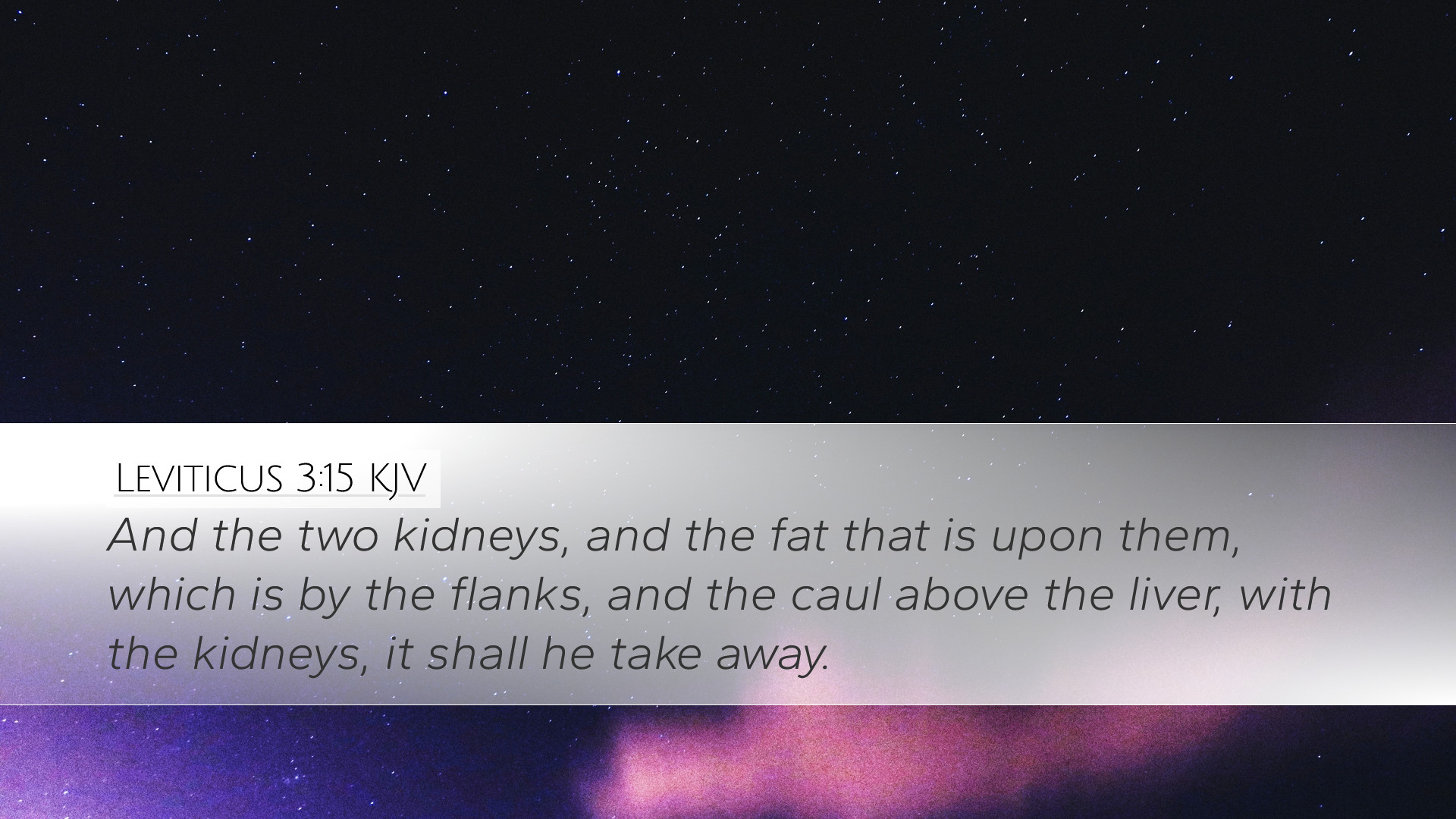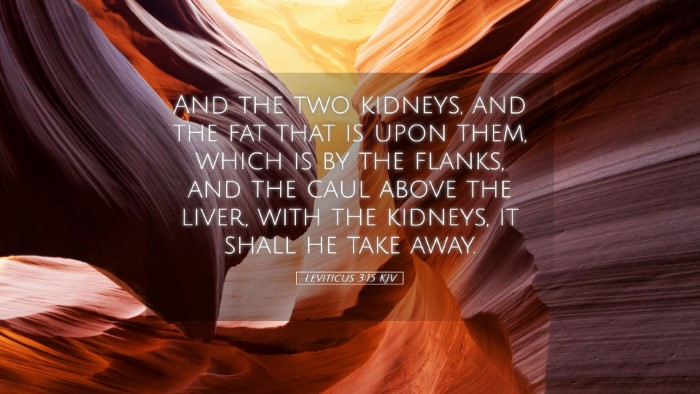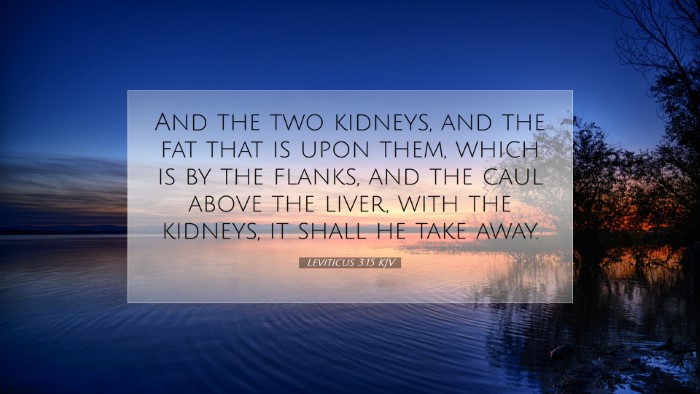Leviticus 3:15 - Bible Commentary
Bible Verse: "And the fat of the sacrifice of peace offerings shall be taken away, and the fat of the kidneys, and the caul that is above the liver, with the kidneys, shall he take away."
Introduction
Leviticus 3:15 falls within the instructions on the peace offerings or fellowship offerings, which were voluntary offerings given by the people as a means of expressing gratitude, fellowship, and communion with God. This verse highlights specific aspects of the sacrificial procedure that ensure the offering is pleasing to God.
Historical Context
The peace offerings represent a significant element of the ancient Israelite worship system, integrating both community and individual aspects of their relationship with God. This ritual was a communal meal where parts of the offering were shared with the priests, providing for their sustenance, and the remainder was often consumed by the offerer and their family, symbolizing a shared fellowship with God.
Summary of Insights from Public Domain Commentaries
Matthew Henry's Commentary
Significance of Fat: Matthew Henry emphasizes that the "fat" of an animal is often regarded as the best part, and in biblical terms, it symbolizes the fattest portion of the offering, which is reserved for God. The exclusion of the fat from ordinary use underscores its sacred nature and the importance placed on offerings to God.
Symbolism of Peace Offerings: Henry also points out that peace offerings signify the peace that results from reconciliation with God. The act of presenting these offerings is tied to the believer’s relationship with God, demonstrating their desire for harmony through worship.
Albert Barnes' Commentary
Understanding the Sacrificial Details: Albert Barnes elaborates on the precise instructions regarding the fat and kidneys in this verse. He explains that the kidneys are often associated with emotions and feelings, thus indicating that even our innermost thoughts and intentions must be offered to God in worship.
Volunteering Offerings: He notes that the peace offerings were voluntary, underlining that genuine worship comes from one's heart. This aspect of generosity reflects the intention behind one’s offerings — that they should not be out of obligation but as a response to God's grace.
Adam Clarke's Commentary
Nutritional Value of Fat: Adam Clarke provides insights into the nutritional significance of fat in ancient diets, explaining that fat was considered a delicacy and highly valued within the community. This further establishes the offering's importance, as it was meant to be the choicest part of the animal.
The Role of the Priests: He highlights that the priests play a crucial role in the sanctification of the offerings. Their approval and involvement signify an essential mediating role between God and the people, ensuring that the rituals performed align with divine standards.
Theological Reflections
The details described in Leviticus 3:15 serve not only practical purposes but also resonate with theological themes regarding holiness, fellowship, and the need for mediation in worship. The emphasis on the fat and the kidneys contributes to a comprehensive understanding of what it means to approach God with offerings that are acceptable and pleasing in His sight.
Application for Pastors and Theologians
As pastors and theologians reflect on Leviticus 3:15, it becomes apparent that the principles of sacrificial offerings are still echoed in modern worship practices. The call to bring our best before God transcends cultural contexts and encourages believers to examine their motivations for giving and worship.
- Encouragement to Offer the Best: Just as the fat was reserved for God, contemporary believers are called to present their best—be it time, talents, or finances—as an act of worship.
- Fostering Community: The communal aspect of peace offerings serves as a reminder for the church to foster unity and fellowship among its members, reflecting the peace that is possible through Christ.
- Understanding Mediation: Recognizing the priestly role in the sacrificial system underscores the theological truth that Jesus Christ serves as our ultimate mediator, making it possible for believers to approach God with confidence.
Conclusion
Leviticus 3:15, while steeped in ancient ritual, is rich with contemporary relevance and spiritual insight. By analyzing this verse through the lens of respected biblical scholars, we deepen our understanding of God's expectations and the significance of worship. Ultimately, it reminds us that our approach to God should always be marked by reverence, intentionality, and a desire for authentic fellowship.


